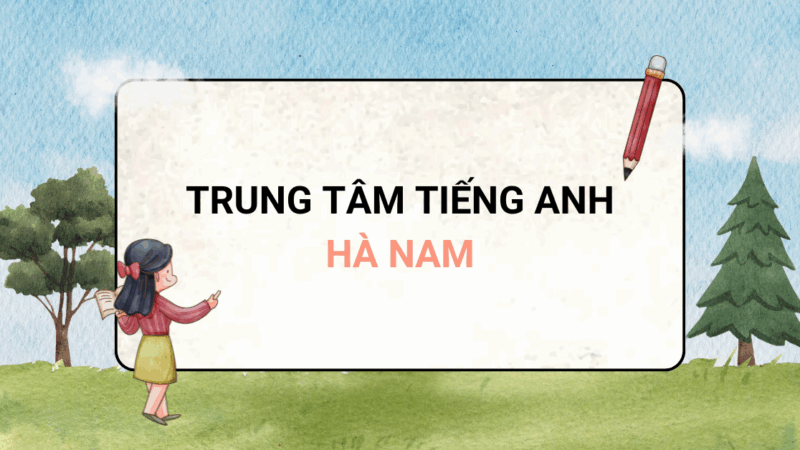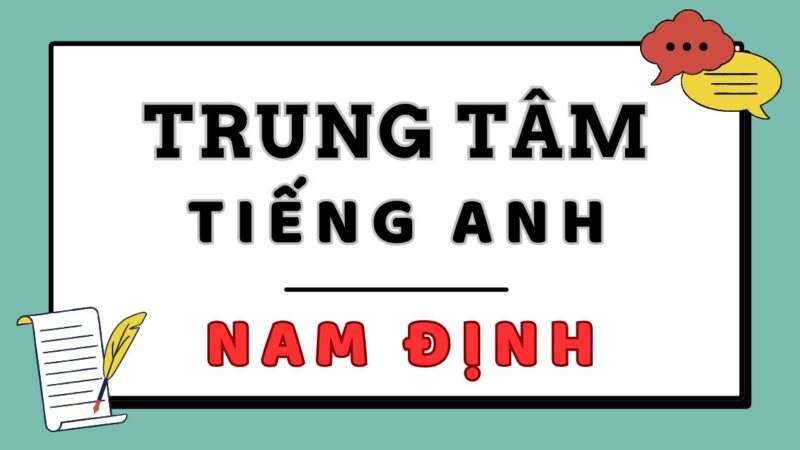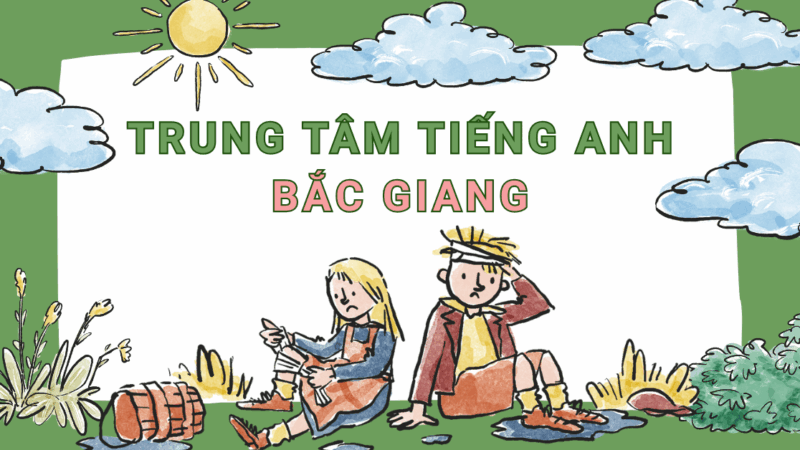50+ bài tập câu điều kiện loại 1 2 3 trong tiếng Anh [kèm đáp án]
![50+ bài tập câu điều kiện loại 1 2 3 trong tiếng Anh [kèm đáp án]](https://truongnguyentatthanh.edu.vn/wp-content/uploads/50-bai-tap-cau-dieu-kien-loai-1-2-3.jpg)
Exercises for conditional sentences type 1 2 3 are quite diverse. So practicing and doing exercises regularly will be the foundation to understand and apply in practice when learning English better. Therefore, in the following article Nguyễn Tất Thành will summarize some English conditional sentence exercises type 1 2 3 with answers for everyone to refer to.
- Thiên tài và sự giáo dục từ sớm – Dạy trẻ khoa học trước khi chào đời [REVIEW chi tiết]
- Tổng hợp kiến thức về góc trong hình học chi tiết nhất
- 30+ phương pháp học toán hiệu quả để bé cảm thấy không còn nhàm chán với toán
- Tranh tô màu bảng chữ cái tiếng Việt cho bé đầy đủ nhất
- Tổng hợp 7+ website & phần mềm học tiếng Việt lớp 2 miễn phí “chất” như trả phí
Knowledge to remember when solving conditional sentences type 1 2 3 exercises
To help learners conquer exercises on conditional sentences in English more accurately, below is some knowledge to remember about grammatical structure and how to use each type:
Bạn đang xem: 50+ bài tập câu điều kiện loại 1 2 3 trong tiếng Anh [kèm đáp án]
Summary of exercises for conditional sentences type 1 2 3 with answers
1. If I (have) ________ a typewriter, I could type it myself.
2. If I had known that you were in the hospital, I (visit) ________ you.
3. You could make much progress if you (attend) ________ class regularly.
4. If I (know) ________ his telephone number, I would give it to you.
5. If you (arrive) ________ ten minutes earlier, you would have got a seat.
6. If he (study) ________ harder, he can pass an exam.
7. She may be late if she (not hurry) ________.
8. Tell him to ring me if you (see) ________ him.
9. If you (speak) ________ more slowly, he might have understood you.
10. What (you do) ________ if you got fat?
11. If you are kind to me, I (be) _______ good to you.
12. He (come) _______ if you waited.
13. If you (ring) _______ the bell, the servant will come.
14. If I had known that the baby was hungry, I (feed) _______ him.
15. If it (not, rain) _______ a lot, the rice crop wouldn’t grow.
16. If today (be) _______ Sunday, we wouldn’t have to work.
17. If she had had your address, she (write) _______ to you.
18. We lost the match. If you (play) _______ for us, we (win) _______.
19. They will not be paid unless they (do) _______ their work well.
20. If I became very rich, I (build ) _______ a hospital for the poor.
21. If he (give) _______ up smoking, as his doctor orders, he will be soon well again.
22. He (not, have) _______ an accident if he had not been driving so fast.
23. If she (write) _______ more carefully, she might not have made too many mistakes.
24. You would have to stay in bed unless your health (improve) _______.
25. If I (have) ________ a typewriter, I could type it myself.
26. If we meet at 9:30, we (have) _________________plenty of time.
27. If you (find) _________________ a skeleton in the cellar, don’t mention it to anyone.
28. The zookeeper would have punished her with a fine if she (feed) _________________ the animals..
29. If you pass your examination, we (have) _________________a celebration.
30. Lisa would find the milk if she (look) _________________ for it in the fridge.
31. What (happen) _________________if I press this button?
32. The door will be unlocked if you (press)_________________ the green button.
33. I should have voted for her if I (have) _________________ a vote then.
34. If you go to Paris, where do you (stay) _________________?
35. If you (swim) _________________ in this lake, you’ll shiver from cold.
36. If someone offered to buy you one of those rings, which you (choose) _________________?
37. The flight may be canceled if the fog (get) _________________thick.
38. If the milkman (come) _________________, tell him to leave two pints.
39. I (call) _________________ the office if I were you.
40. Someone (sit) _________________on your glasses if you leave them there.
41. You would hear my explanation if you (not talk) _________________so much.
42. What I (do) _________________if I hear the burglar alarm?
43. If you (read) _________________the instructions carefully, you wouldn’t have answered the wrong question.
44. If Mel (ask) _________________ her teacher, he’d have answered her questions.
45. I would repair the roof myself if I (have) _________________a long ladder.
46. Unless they turn that radio off, I (go) _________________mad.
47. If you were made redundant, what did you (do) _________________?
48. We’ll have a long way to walk if we (run) _________________out of petrol here.
49. If you shake that bottle of port, it (not be) _________________ fit to drink.
50. If you speak louder, your classmates (understand) _________________ you.
51. I’ll probably get lost unless he (come) _________________with me.
52. You (not have) _________________ so many accidents if you drive more slowly.
53. If you (wear) _________________ a false beard, nobody would have recognized you.
54. If she (leave) _________________ the fish here, the cat will eat it.
55. You (have) _________________ no trouble at school if you had done your homework.
56. Unless you (tell) __________________ the truth, I won’t help you.
57. You’ll get pneumonia if you (not change) _________________ your wet clothes.
58. If I had known that you couldn’t eat octopus, I (not buy) _________________ it.
Xem thêm : Giải mã ma trận đề thi tiếng Anh THPT quốc gia 2023/2024
59. If they (hang) _________________ that picture lower, people would be able to see it.
60. She (be) _________________able to walk faster if she didn’t have such high-heel shoes.
61. I (bring) _________________ you some beer if I had known that you were thirsty.
62. If you had touched that electric cable, you (be) _________________ electrocuted.
63. If the story hadn’t been true, the newspaper (not print) _________________ it.
64. I (not buy) _________________ things on the installment system if I were you.
65. Dan (arrive) _________________ safe if he drove slowly.
Answer:
1. If I (have) ____had____ a typewriter, I could type it myself.
2. If I had known that you were in hospital, I (visit) __would have visited______ you.
3. You could make much progress if you (attend) ____attended____ class regularly.
4. If I (know) ___knew_____ his telephone number, I would give it to you.
5. If you (arrive) _____arrived___ ten minutes earlier, you would have got a seat.
6. If he (study) _____studies___ harder, he can pass an exam.
7. She may be late if she (not hurry) ___doesn’t hurry_____.
8. Tell him to ring me if you (see) ____see____ him.
9. If you (speak) ______have spoken__ more slowly, he might have understood you.
10. What (you do) ____would you do____ if you got fat?
1 – will be;
12 – would come;
13 – roasted;
14 – would have fed;
15 – didn’t rain;
16 – were;
17 – would have written;
18 – had played – would have won;
19 – did;
20 – would build;
21 – gives;
22 – wouldn’t have had; 1
23 – had written;
24 – improved;
25 – had
26. will have;
27. find;
28. had fed;
29. will;
30. looked;
31. will happen;
32. press;
33. had had;
34. will you stay;
35. swim;
36. would you choose;
37. gets;
38. comes;
39. would call; 40. will sit;
41. don’t talk;
42. will you do;
43. had read;
44. had asked;
45. had;
46. will go;
47. would you do;
48. tremor;
49. won’t be;
50. would have understood;
51. comes;
52. wouldn’t have;
53. had worn;
54. leaves;
Xem thêm : Công thức thì tương lai gần (Near future tense/ To be going to)
55. would have had;
56. Tell;
57. don’t change;
58. wouldn’t have bought;
59. hung;
60. would be;
61. would have brought;
62. would have been;
63. wouldn’t have printed;
64. wouldn’t buy;
65. would drive;
Experience in conquering if statement exercises type 1 2 3
To improve efficiency when solving exercises of conditional sentences 1, 2, 3, below are some tips for learners to refer to:
Use commas between two clauses
When we use conditional sentences, there are often some very small details and if you don’t pay attention, it will be easy to lose points while taking the English writing test. That is how to use a comma between two clauses in a conditional sentence.
Everyone needs to remember that, when the clause containing if comes first, you need to put a comma to move to the second clause. As for the case when the main clause comes first, you do not need to put a comma between the two clauses. topic.
For example:
If she has a sore throat, I will make her some honey lime tea.
I will make her some honey lime tea if she has a sore throat.

Don’t forget the verb to-be
When we learn the structure applied in conditional sentences, each person will often tend to only pay more attention to the structure with regular verbs, but will almost ignore the structure containing the verb to- beige. However, with clauses using the simple present and simple past, the verb to-be will be divided into different forms based on the subject (am-is-are and was-were).
Therefore, if we only list the verses with structures containing regular verbs, we will only see the above clause. Therefore, we have synthesized both types of clauses: to-be verbs and regular verbs. Everyone can refer to a more detailed way to use it correctly.
Determine the article format
First, conditional sentences are often seen in the ‘sentence transformation’ form.
It is possible that you will be asked to rewrite a conditional sentence containing two clauses or maybe a pair of sentences that go together. In this case, there will be one clause/sentence that is the determining condition/factor, affecting or leading to the other clause/sentence. For example:
He’s not tall. He can’t become a model. ⟶ Deciding factor: ‘He’s not tall.’
Result: ‘He can’t become a doctor.’
She sneezes a lot when she comes near flowers. ⟶ Deciding factor: ‘she comes near flowers’
Result: ‘she sneezes a lot’
How to correctly identify the type of conditional sentence
Through tenses and meanings from both clauses in a sentence or pair of sentences, you can choose the conditional sentence form. Specifically:
Simple Present Tense (or a combination of Simple Future): Conditional sentences of types 0, 1 and 2. Next, rely on the meaning of the sentence to confirm. Specifically:
If the sentence (pair of sentences) expresses an obvious truth
⟶ Type 0 (no converse assumption).
For example:
When you heat ice, it melts.
⟶ If you heat ice, it melts.
If a sentence (pair of sentences) represents a situation/situation that is likely (unlikely) to happen in the future, then another situation/situation may occur later.
⟶ Type 1 (no converse assumption).
For example:
Once I win this competition, I will buy you guys food and milk tea.
⟶ If I win this competition, I will buy you guys food and milk tea.
If a sentence (pair of sentences) states a current situation/circumstance and this situation/circumstance develops into another situation/circumstance at that time
⟶ Type 2 (reverse assumption).
For example:
I don’t have to go to work today, so I can sleep in.
⟶ If had to go to , I couldn’t sleep in.
Past Tense
⟶ Type (assumed otherwise).
For example:
Last night, I felt tired, so I didn’t go out with them.
⟶ Last night, if I hadn’t felt tired, I would have gone out with them.
When I was young, I felt sad because I didn’t have many friends.
⟶ When I was young, I wouldn’t have felt sad if I had had many friends.

Pay attention to would and if
In most English conditional sentences, the word if can be found placed at the beginning of the sentence. When you hear or read English that contains the word if, it can almost be confirmed that this is a conditional sentence. Next, we should check whether the whole sentence contains the word would or not?
This means that not all English conditional sentences contain the word would, but most of them can be found. In some cases, the word will can be used to replace the word would in a sentence.
In short, if you see if and would/will in the same sentence, you can immediately confirm that it is a form of conditional sentence.
Let’s break the sentence into two specific clauses to identify (1) conditional clauses (if clauses) and (2) main clauses (would/will clauses).
For example:
If you exercised every day, you would be so fit.
As mentioned above, we should divide this sentence into 2 parts. They are separated by commas: If you exercised everyday (conditional clause), you would be so fit (main clause).
To help you understand the meaning of the sentence more clearly, the if clause comes first to express the conditional sentence that will happen first. As for the clause with would, it will come after it to indicate that the result is something that is likely to happen in a strong case for the condition to happen.
Based on the example above, we can divide it into 2 as follows: If you don’t exercise, you will not be healthy.
Conclude
Above is a comprehensive list of exercises for conditional sentences 1 2 3 in English for everyone to refer to. This is an important grammatical structure when doing exercises or practical applications when learning a foreign language, so don’t forget to practice and apply it to evaluate your ability.
Nguồn: https://truongnguyentatthanh.edu.vn
Danh mục: Giáo dục





